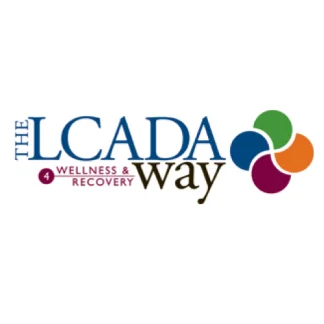Bellefaire Jewish Childrens Bureau
Bellefaire Jewish Childrens Bureau is a private rehab located in Elyria, Ohio. B...
Located in Elyria, Ohio, The LCADA Way provides alcohol and drug rehab services to men and women. They provide ambulatory detox, partial hospitalization, medication assisted treatment, and intensive outpatient treatment.
The LCADA Way provides addiction services through coed and gender-specific programming. Services include:
Detox Individuals struggling with opioid use disorder may participate in ambulatory detox through the medication assisted treatment program.
Partial Hospitalization Treatment is provided to individuals within a sober living home environment where day treatment is offered Monday – Friday. Recovery is supported through therapy, skills building, and a focus on obtaining employment to create stability. Women are offered gender-specific groups where they can focus on issues commonly experienced by women who suffer from addiction.
Intensive Outpatient Individual therapy, group therapy, and sober living skills are taught. Clients meet three times a week while living in a sober living environment. Women are offered gender-specific groups where they can focus on issues commonly experienced by women who suffer from addiction.
Contact us for more information: (440) 989-4900

Connect with The LCADA Way by calling their admissions team directly.
(440) 989-4900 Website Get DirectionsThe Joint Commission, formerly known as JCAHO, is a nonprofit organization that accredits rehab organizations and programs. Founded in 1951, the Joint Commision's mission is to improve the quality of patient care and demonstrating the quality of patient care.
Joint Commission Accreditation: Yes
Research clearly demonstrates that recovery is far more successful and sustainable when loved ones like family members participate in rehab and substance abuse treatment. Genetic factors may be at play when it comes to drug and alcohol addiction, as well as mental health issues. Family dynamics often play a critical role in addiction triggers, and if properly educated, family members can be a strong source of support when it comes to rehabilitation.
Group therapy is any therapeutic work that happens in a group (not one-on-one). There are a number of different group therapy modalities, including support groups, experiential therapy, psycho-education, and more. Group therapy involves treatment as well as processing interaction between group members.
In individual therapy, a patient meets one-on-one with a trained psychologist or counselor. Therapy is a pivotal part of effective substance abuse treatment, as it often covers root causes of addiction, including challenges faced by the patient in their social, family, and work/school life.
Life skills trainings involve all the skills a person must have in order to function successfully in the world. These include time management, career guidance, money management, and effective communication. Truly successful addiction recovery is based on the ability to not only live substance-free, but to thrive. Life skills teaches the practical necessities of functioning in society, which sets clients up for success in life, and therefore sobriety.
Group therapy is any therapeutic work that happens in a group (not one-on-one). There are a number of different group therapy modalities, including support groups, experiential therapy, psycho-education, and more. Group therapy involves treatment as well as processing interaction between group members.
In individual therapy, a patient meets one-on-one with a trained psychologist or counselor. Therapy is a pivotal part of effective substance abuse treatment, as it often covers root causes of addiction, including challenges faced by the patient in their social, family, and work/school life.
Life skills trainings involve all the skills a person must have in order to function successfully in the world. These include time management, career guidance, money management, and effective communication. Truly successful addiction recovery is based on the ability to not only live substance-free, but to thrive. Life skills teaches the practical necessities of functioning in society, which sets clients up for success in life, and therefore sobriety.
In individual therapy, a patient meets one-on-one with a trained psychologist or counselor. Therapy is a pivotal part of effective substance abuse treatment, as it often covers root causes of addiction, including challenges faced by the patient in their social, family, and work/school life.
Life skills trainings involve all the skills a person must have in order to function successfully in the world. These include time management, career guidance, money management, and effective communication. Truly successful addiction recovery is based on the ability to not only live substance-free, but to thrive. Life skills teaches the practical necessities of functioning in society, which sets clients up for success in life, and therefore sobriety.
Life skills trainings involve all the skills a person must have in order to function successfully in the world. These include time management, career guidance, money management, and effective communication. Truly successful addiction recovery is based on the ability to not only live substance-free, but to thrive. Life skills teaches the practical necessities of functioning in society, which sets clients up for success in life, and therefore sobriety.
Bellefaire Jewish Childrens Bureau is a private rehab located in Elyria, Ohio. B...
The Nord Center provides comprehensive behavioral and mental health services to ...
Catholic Charities Lorain County is a non-profit rehab located in Elyria, Ohio. ...
Pathways Counseling and Growth Center is a private rehab located in Elyria, Ohio...